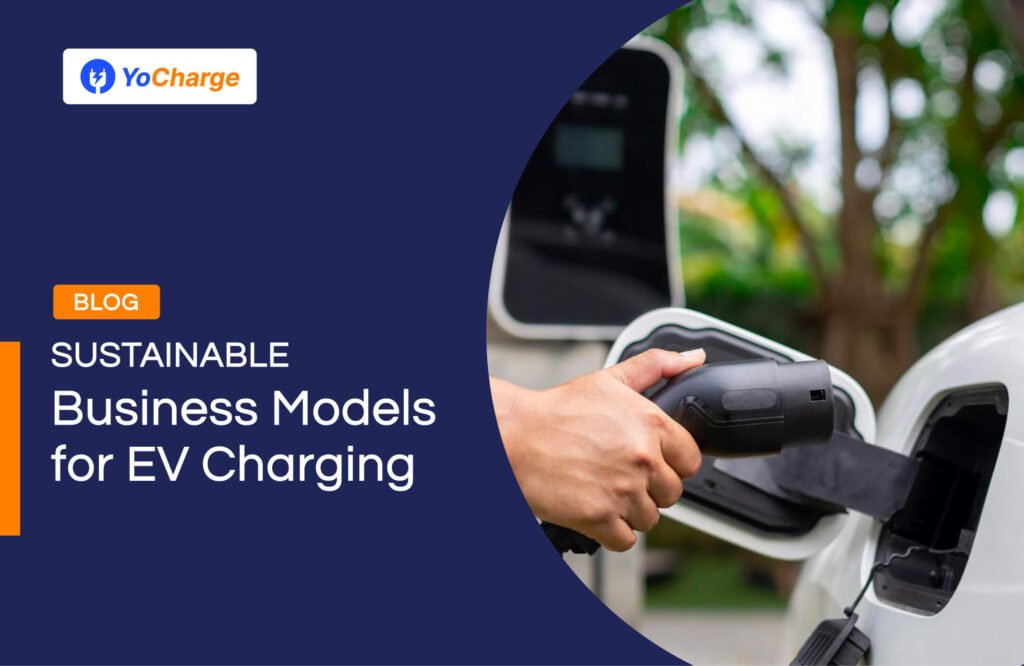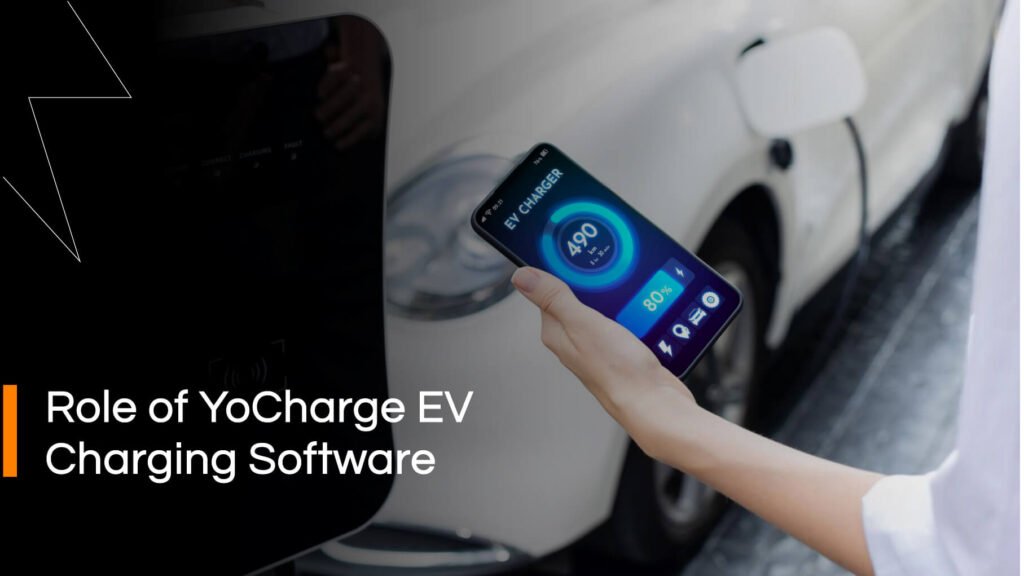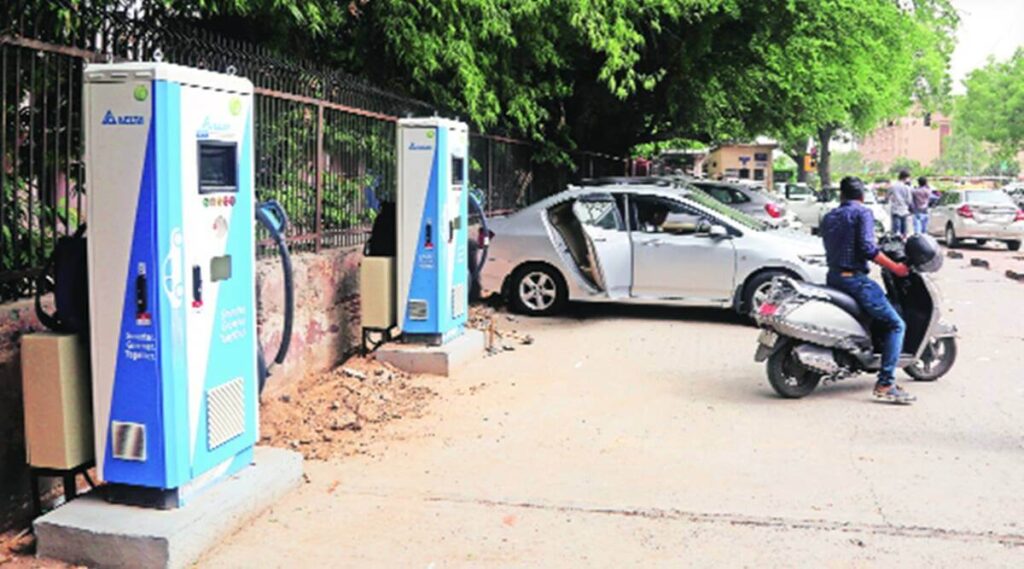
Sustainable Business Models for EV Charging have recently gained popularity for accelerating the switch towards sustainable transport and reducing carbon emissions. These business models merge profitability with environmental sustainability, ensuring reliable and practical charging infrastructure for eco-friendly transportation.
For those of you who are aware of the concept, sustainable business models are strategies and frameworks that prioritize environmental, social, and economic sustainability in the operations and outcomes of a business.
The EV charging sustainable business models ensure efficient energy consumption, integration with renewable energy sources, accessibility for all communities, and stakeholder collaboration.
Need for Sustainable Business Models for EV Charging

There are two main reasons why sustainable business models are required for EV charging:
- The boom in the EV industry currently comprises higher supplies of EV’s but lacks EV charging resources globally.
- Unlike ICE (Internal Combustion Engine) vehicles that pollute the air with carbon emissions and consume petrol/ diesel, EVs are more eco-friendly as they consume electricity to recharge the electric vehicles and do not produce carbon emissions.
Types of EV Charging Sustainable Business Models

Sustainable business models in EV charging aim to address the challenges associated with infrastructure development, convenience, affordability, and user experience. By embracing these models, the stakeholders can collaborate to accelerate the transition to eco-friendly transportation, reduce carbon emissions, and promote a sustainable future. The following are various types of sustainable EV charging business models:
Ad-supported business model:
Like mobile apps start ads amid a video or a process/session, the charging stations can run ads on the mobile apps or the digital screens of the charging station during the charging sessions. Once the ads are viewed, the customers can be charged a discounted fee or collect loyalty points for the number of ads viewed during the session. This business model presents an opportunity for businesses to reach a captive audience of EV drivers while generating revenue for charging stations.
Pay-per-view business model:
In this model, the EV users’ experience could be enhanced by offering them value-added services like playing a movie or TV show or listening to music during the charging process for an additional fee. This entertainment feature improves the charging experience and allows EV drivers to make the most of their time spent at the charging station.
Charging as a service business model:
Instead of selling charging stations to the EV charging business, the charging infrastructure providers can offer charging-as-a-service. This model enables EV charging businesses to deploy charging stations without investing in the infrastructure themselves. What happens in this is that the charging infrastructure providers would handle the equipment installation, maintenance, and management of the charging stations. The EV charging businesses would be paying a subscription or usage fee for the service. This approach works best for charging station start-ups in the industry.
Subscription-based business model:
Another approach to EV charging is a subscription-based model where customers pay a monthly or yearly fee to use the charging network. Subscribers may gain access to a network of charging stations, often with additional benefits such as priority access or discounted rates. This model provides predictability in charging costs and encourages regular use of the charging network, fostering customer loyalty and incentivizing EV adoption.
Pay-per-use business model:
In the pay-per-use model, EV drivers would pay for their charging session based on the kilowatt-hour (kWh) of energy consumed and the location of the charging station. The pricing structure could vary depending on factors such as peak demand, time of day, or the availability of renewable energy sources. This approach ensures that users only pay for the energy they consume, promoting fairness and flexibility in charging costs.
Role of YoCharge EV Charging Software in Sustainable Business Models

Business Models
YoCharge is one of the upcoming EV Charging Software provider that is gaining fame for its White Label EV Charging Software Solution. We offer our services to EV charging businesses globally. Here’s an in-depth look at our role in sustainable business models:
Efficient Charging Management:
Our EV charging management software (EVCMS) empowers charge point operators (CPOs) to manage their networks efficiently. The software allows CPOs to track the usage and performance of the charging sessions in the charging station in real-time. The data collected through the real-time feature provides insights into the charging patterns, revenue generation, availability of chargers and tracking of customers. This efficient management reduces energy wastage, maximizes charging station utilization, and minimizes overall carbon emissions.
Seamless User Experience:
YoCharge software focuses on enhancing the charging experience for EV drivers. With intuitive user interfaces and mobile apps, it allows drivers to quickly locate nearby charging stations, check the availability of chargers, flexible payment options and start/stop charging sessions with just a tap on the mobile screen. Our software also supports features like RFID card integration and Scan, Pay & Charge feature that can be availed by scanning a unique QR code.
Payment and Billing Integration:
Our EVCMS integrates secure payment gateways, enabling EV users to conveniently pay for their charging sessions. It supports various payment methods, including credit/debit cards, net banking, mobile wallets, and ‘Scan, Pay & Charge’ using a unique QR code, ensuring a seamless payment process. Moreover, YoCharge software handles billing and invoicing and generates accurate records of charging sessions. This integration streamlines financial transactions, enhances revenue collection, and contributes to the economic viability of EV charging businesses.
Data Analytics:
The EV charging data provided by our EVCMS on the charging patterns, energy consumption and peak demand durations will help the CPOs or stakeholders to make informed business decisions regarding load balancing and revenue generation.
Scalability and Integration:
Our experts have developed the EV charging management software in such a way that it is configurable with the hardware of various charging stations and network protocols (OCPP & OCPI). This flexibility allows CPOs to expand their networks effortlessly and adapt to evolving industry standards.
Conclusion:
So far, we have discussed sustainable EV charging business models, why they are needed, types of sustainable business models for EV charging, and how YoCharge EV Charging Software contributes to those business models. Our team of experts is confident that the EV charging industry will successfully and drastically reduce the Carbon footprint in the coming years. If you are interested in earning profits while contributing to the environment’s good, you should run an EV charging business. Feel free to contact our specialists to learn more about our EV charging management software solutions at +91-9462878912 or Whatsapp!



